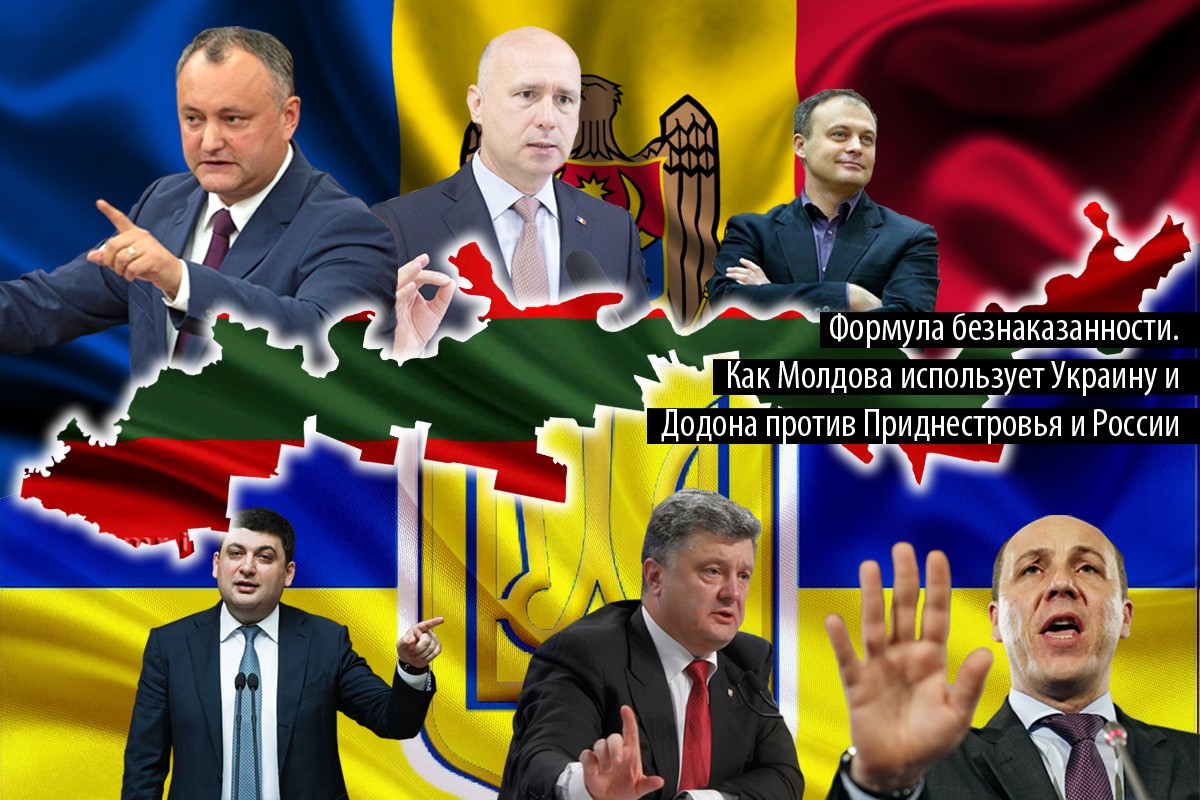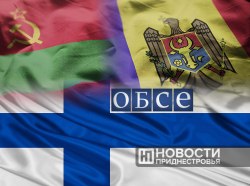Pridnestrovie's eastern neighbour — Ukraine — does not hide any longer it is seeking to impose a blockade on the PMR. The Ukrainian ambassador to Moldova has clearly indicated Kiev's intentions to subordinate our country's trade relations to Kishinev, in fact confirming the fears of the Pridnestrovian MFA. In the meantime, the first joint Moldo-Ukrainian post has begun working in Kuchurgan.
Tiraspol has repeatedly drawn the attention of international partners to purely political motives behind the forthcoming establishment of joint Moldo-Ukrainian control, which violates one of the principles of negotiations — no pressure shall be exerted on any party. Kishinev has called such fears unfounded, claiming instead that Pridnestrovians «will only benefit from joint posts.» The Moldovan vice premier, Gheorghe Balan kept saying that this issue «has nothing in common with the settlement of 'the Pridnestrovian problem'.»
The Ukrainian ambassador's statements have torn the humanitarian «mask» off such arguments by the Moldovan authorities.
«Kiev is seeking to impose a blockade on Pridnestrovie so that the breakaway region's trade is regulated by Kishinev," he said during the recent conference «25 years of cooperation: current problems of Moldo-Ukrainian relations». At the end of May, Ukraine blocked the transit of certain categories of food products to Pridnestrovie. The day before, Ukraine's Verkhovna Rada member Nadezhda Savchenko had demanded that the Pridnestrovian imports should be prohibited altogether.
Ukraine is past its prime
That Ukraine was transforming from a guarantor state and mediator into a conflicting party was noted by the then president of the PMR, Igor Smirnov, back in 2006 when Kiev and Kishinev hit Pridnestrovie's foreign trade relations. Then Ukraine and Moldova violated one of the provisions of the 1997 Memorandum providing for the PMR's right to freedom of foreign trade. Moldova withdrew from its previous agreements with Pridnestrovie on customs control and, thanks to Ukraine's support, began a policy of blockade.
However, Ukraine's position was not always that pro-Moldovan. During the Moldo-Pridnestrovan war, our neighbour provided shelter for thousands of refugees and then actively contributed to the peaceful resolution of the conflict. Through the mediation of the presidents of Ukraine and Russia, the conflicting sides signed a memorandum in 1997 on the normalisation of relations which gave hope for putting an end to the confrontation, taking into account the interests of Tiraspol and Kishinev.
The then president of Ukraine, Leonid Kuchma, promoted the idea of observing all previous agreements whereby new arrangements should not complicate the economic relations of Pridnestrovian business entities.
According to experts, Ukraine saw Pridnestrovie as a certain obstacle to Romania's expansion in the region. Since 1989 it was talked much in Moldova about merging with a «fraternal country», which could trigger a review of the existing borders. The collapse of the USSR resulted in the break-up of the Potsdam world balance system, after which territorial disputes arose in Europe and former Soviet republics. The reunification of Moldova with Romania could lead to the latter's claims to South Bessarabia and North Bukovina, which became part of Ukraine in 1940 following the implementation by the USSR of the secret protocol to the Molotov-Ribbentrop Pact. It is widely believed by political experts that it is Pridnestrovie that prevented the reunification of Moldova with Romania in the 1990s.
Moreover, after becoming independent, Kiev sought to increase its political influence in the region, and participation in talks on the Moldo-Pridnestrovian settlement could significantly increase Ukraine's political influence as a state. Further developments showed that the Ukrainian factor proved to be the most significant. Not only in the Moldo-Pridnestrovian conflict, but in the geopolitical confrontation between the West and Russia, which directly affects the situation around Pridnestrovie.
Divide and govern
It was first noted in the 19th century Germany that the union of Ukraine and Russia was the bedrock of the powerful civilisation known as the Russian world. This concept was further developed by Zbigniew Brzezinski in his book The Grand Chessboard. So, the ideologue of the deterrence of Russia argued that it was only with Ukraine that Russia could become a super-power and that those countries should be divided at any cost. According to experts, the ongoing Russia-Ukraine conflict is his last and most magnificent project. In accordance with Brzezinski's plan, which was voiced in the early 2000s, it was necessary to transfer power to the Ukranian nationalists, headed by Viktor Yushchenko, and organise a permanent controlled conflict between Ukraine and Russia.
After the Orange Revolution of 2004, Ukraine did not only become an antagonist to Russia, but also lost its own political subjectivity, sacrificing its interests to please the West. The disruption by the Ukrainian authorities of economic ties with Russia has come at a cost for the Ukrainian economy. Only by joining the blockade of Pridnestrovie has Ukraine lost $200 million a year.
A severe blow to the Eurasian Union was caused by the Maidan protests of 2013, which drove a wedge between Moscow and Kiev, plunging their relations into a confrontation. In this context, Ukraine sees Pridnestrovie, which is part of the Russian world, as an instrument of pressure on Moscow.
«In the midst of the political crisis that has continued since November 2013 and the civil war in south-eastern Ukraine, official Kiev is implementing US and NATO scenarios in a hybrid war against Russia, regarding Pridnestrovie as 'the second Russia-Ukraine front'. Hence very aggressive rhetoric against Tiraspol and 'pro-Russian separatists' in Pridnestrovie, as well as a number of joint measures taken together with Kishinev to stifle the PMR's economy," writes Russia's political scientist, Natalya Kharitonova in her book The Pridnestrovian Conflict.
Moldova's profit
Kishinev has lost no opportunity to make advantage of the moment. By using the Ukrainian factor, Moldova is reinforcing its pressure on Tiraspol, with the OSCE actually keeping itself aloof. In such circumstances, Russia finds itself in a very awkward position. If in 2006 it harshly responded to Pridnestrovie's economic blockade by imposing economic sanctions against Moldova, this time Moscow has fewer tools for a response. By supporting the president without actual power, Russia has to tolerate illegal detentions of its peacekeepers and increased pressure on Pridnestrovie. However, the last scandal involving the expulsion of Russian diplomats from Moldova has already shown that Russia's patience is beginning to wear thin. Russia's foreign minister has expelled five Moldovan diplomats, expressing discontent with «the counterproductive step taken by the Moldovan side». Nevertheless, Moldova has more «surprises» to offer until Moscow keeps hoping on Igor Dodon's pro-Russian stance, and the people with real power in Moldova will not miss the chance to seize the day, especially since Ukrainian politicians are ready as never before to play into their hands.
Nikolay Syrbu.








